Mozambique: Mondlane wants parliament, attorney general to probe farming project
Why Tina named her son Win — plus three other stories from Mozambique’s post-election violence aftermath
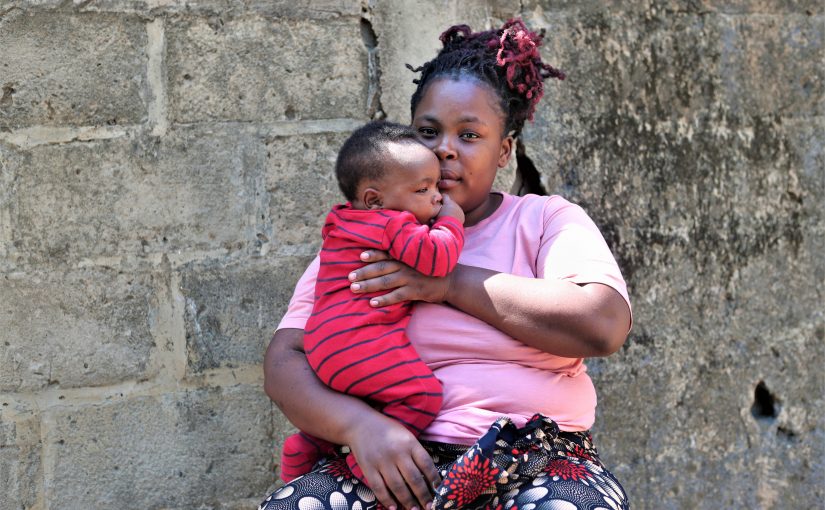
Tina Cossa, 22, who was one month pregnant at the time, was shot in the foot a year ago during the demonstrations in Maputo, Mozambique. [Photo: Luisa Nhantumbo/Lusa]
Aurora’s life has never been the same after her husband died in the post-election demonstrations in Maputo, a feeling shared by thousands of families, despite cases of overcoming, such as a baby born to a mother who was shot.
“He went out to work and never came back,” says Aurora Mhula, 29, in a conversation with Lusa, between pauses to try and hold back the tears. At the same time, the pain overcomes: “It’s someone you share a life with, you share everything and a little, and it’s not easy for you to know out of the blue that the person you were living with is no longer coming back”.
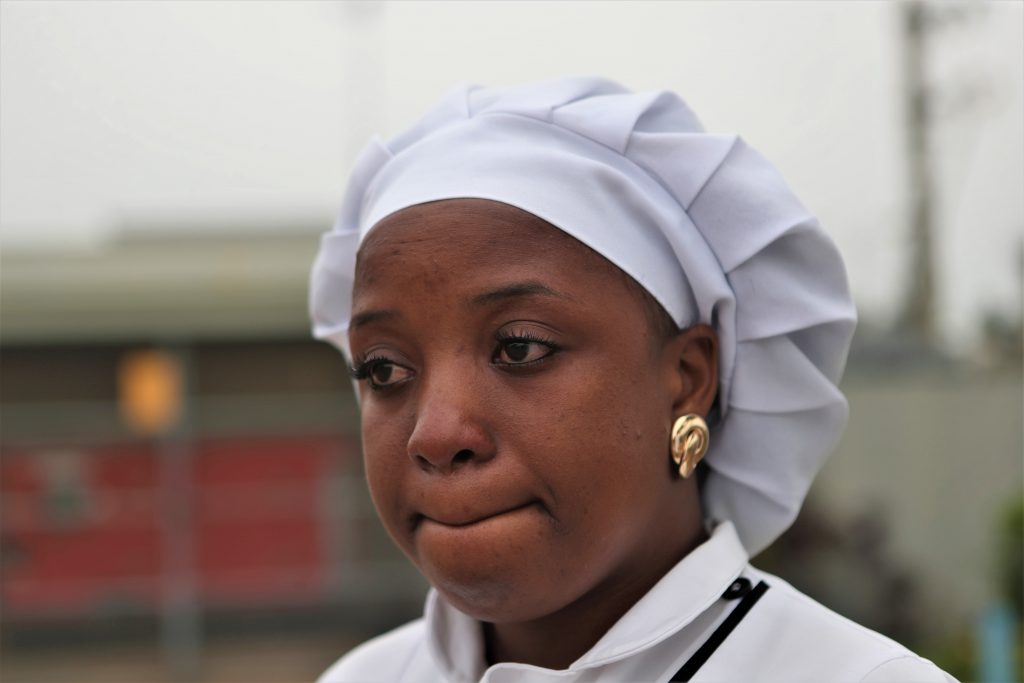
It was 9 January and her husband, Carlos Mhulua, left early for another shift at a hotel in the capital. On the way, he went to Maputo International Airport to welcome presidential candidate Venâncio Mondlane, who was returning to Mozambique after two and a half months away, citing security concerns.
The candidate, who contested the election results, had called for a reception at the airport for what he said would be his “inauguration”. One kilometre from the airport, in Mozambican Heroes Square, in an area with a strong police presence, Carlos Mhulua was hit in the neck by a bullet. He died shortly afterwards at Maputo Central Hospital (HCM).
Aurora only found out hours later, from a work colleague, on a morning when several people died in the city following police charges to disperse Mondlane supporters.
“Unfortunately, I only found out afterwards,” says the widow, who had just moved into her new house with her husband, a marriage that had lasted four years, as well as 11 years of dating.
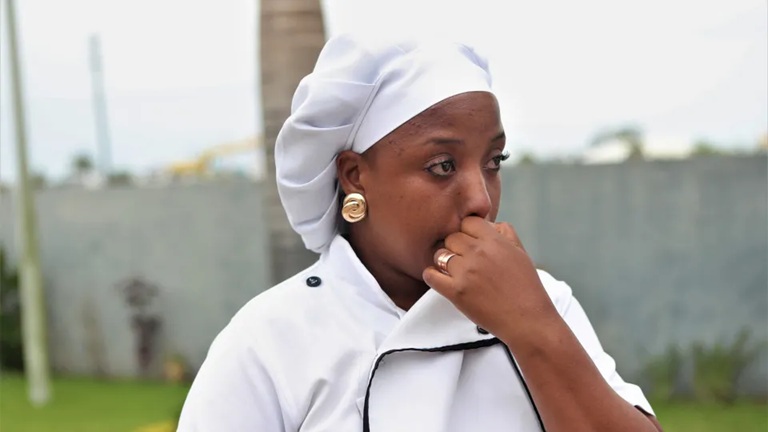
“I’ve been trying to come to terms with it, to try to make these wounds heal,” says the young widow, who now carries two rings on the same finger, her own and that of her deceased husband.
She works as a pastry chef at a bakery on the outskirts of Maputo and says it’s a way to get back on her feet. With what she earns, she’s trying to finish their house, which was still under construction, to continue Carlos’s biggest dream, while asking for justice for those killed since October.
“Not just for me, but for all those families who were bereaved at that time, that something happens, at least to compensate. It’s okay that our loved ones aren’t coming back, but I think that knowing that these people are paying in some way will be important for all of us; at least our loved ones will rest in peace,” she said.
The post-election demonstrations in Mozambique began two days after the double murder, in the centre of Maputo, of Elvino Dias and Paulo Guambe, on the night of 18-19 October, both supporters of candidate Venâncio Mondlane. According to the Decide platform, 411 people have died since then in the context of the protests, 102 of them in Maputo, which had 970 injured by mid-March.
On 23 November 2024, Almeida João took to the streets in Matola, on the outskirts of Maputo, to join a group of people calling for “change” in the country, without imagining that he would end up going on a journey that would bring him home at the age of 27, two weeks later, without his left leg.
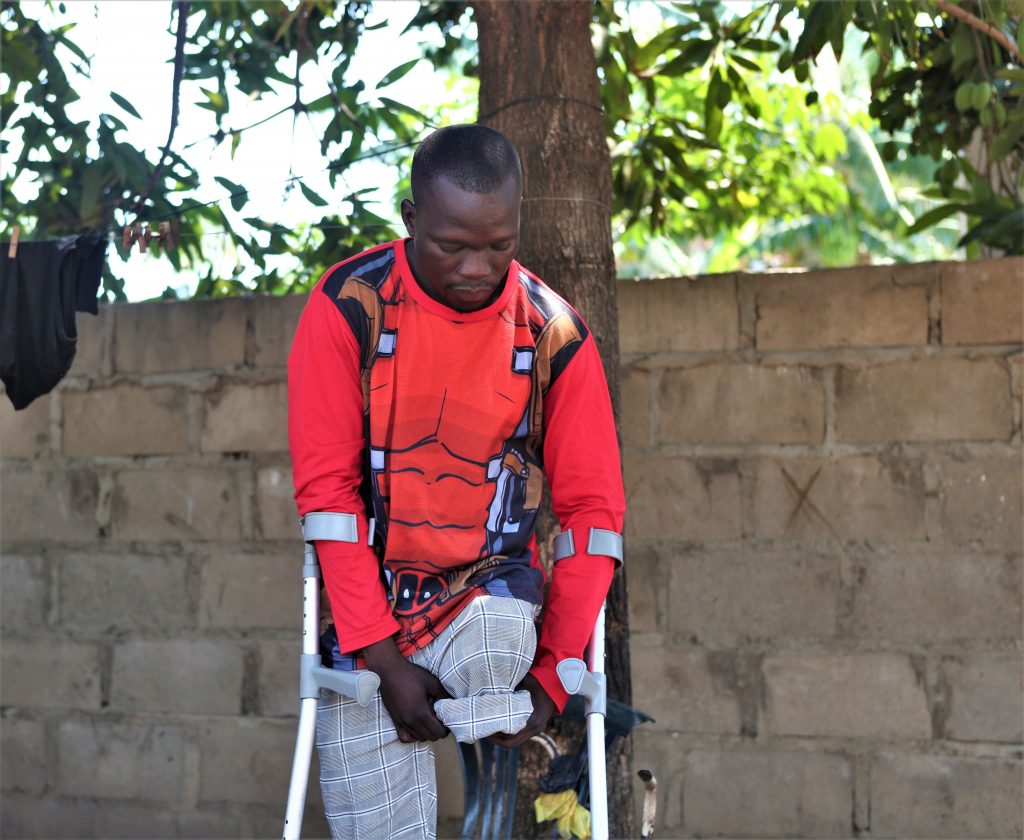
During the demonstration in the street, he says, the police Rapid Intervention Unit (UIR) appeared and fired. Almeida was one of those shot in the leg and then taken to Machava hospital, where he spent two hours bleeding without first aid.
“Then the ambulance from the HCM arrived, we got into the two ambulances,” and on the way, “one of the people died while we were going,” he told Lusa, adding that he collapsed shortly after arriving at the HCM.
He was taken to a resuscitation room, where he stayed all day, followed by a week of almost no care, complaining of medical negligence, which led to the amputation of his leg.
Then came the weight on his conscience and the shame, along with the worry about supporting himself, his girlfriend, and his daughter.
He used to work as a locksmith and mechanic, which was enough to eat and pay the rent. Today, unable to lead a normal life, he has returned with his daughter to his parents’ house, where he spends his time sitting in the shade of a tree.
“It’s not been easy at all. Very complicated indeed,” he says, assuming that he was shot because he did what was necessary to change something in the country.
“I don’t regret being in that place, lending a hand so that the country can change in the circumstances of what we don’t want. So I would say “let’s move forward so that things can change”, because we really need Mozambique to change,” he says.
He recognises the pain he is going through, but also that some “losses” are “necessary” for things to “happen”, and believes that one day Mozambique’s political and social conditions will improve.
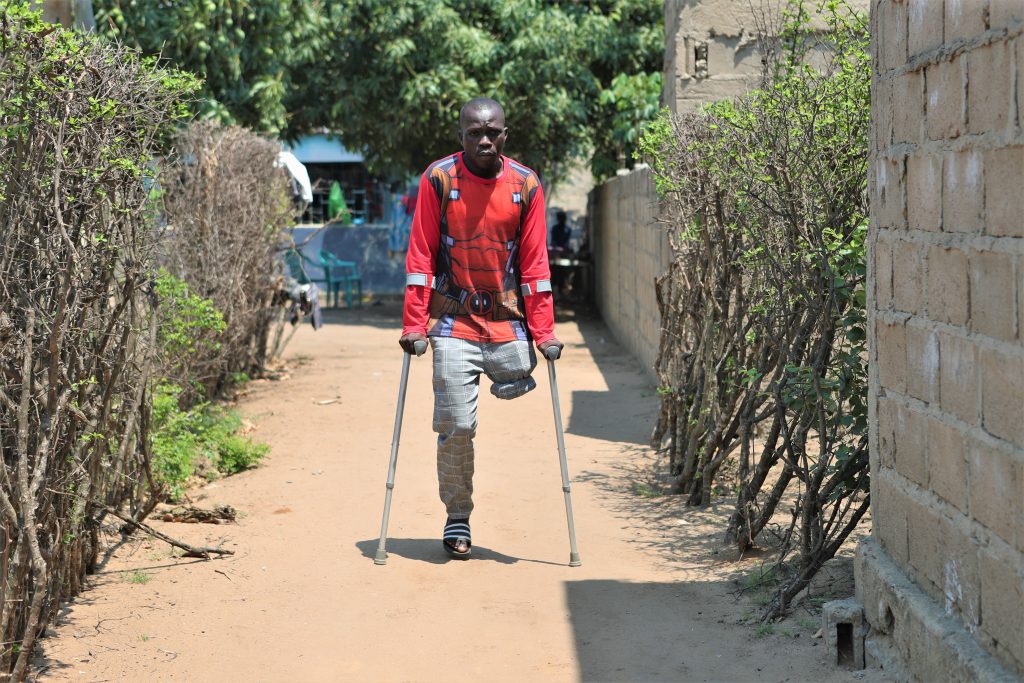
Up until March, Mozambique experienced a period of severe social unrest and accentuated violence, with barricades, looting and constant street clashes with the police.
However, to be a victim, you didn’t have to be directly involved in the demonstrations, like Carlos Mhula or Almeida João. Tina Cossa, 22, claims to be proof of this. A few weeks pregnant at the time, she was also hit in the foot by a bullet that she doesn’t know who fired.
She says she was leaving her home in Zimpeto with a group of friends, heading for her boyfriend’s house in the Bagamayo neighbourhood of Maputo: “Suddenly, we just heard a shot. I don’t know how it got into my foot.”
“We got scared and all ran,” she recalls, explaining that after she was shot, she lay in a ditch for a few minutes. This was followed by three months in hospital, with worries about the child’s life.
“I have limits when it comes to doing things. Even sitting, I can’t sit for long,” she explains, acknowledging that walking “is also a very serious problem”.
She acknowledged her disgust with what she had experienced, and with her country, as she thought back to the day she was shot: “There [at the scene of the shooting] I said “what about my baby, what will become of him”.”
Despite the effects on her mobility, she carries her baby son in her arms today.
His name is Win, in honour of the “war” her son had to face and win while still in her womb.
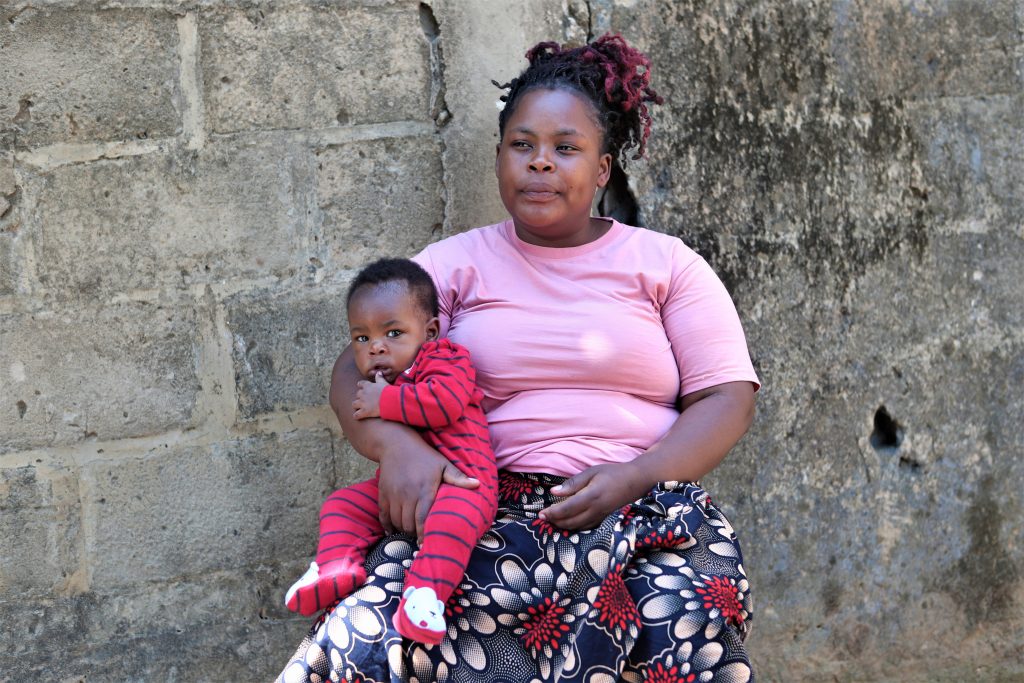












Leave a Reply
Be the First to Comment!
You must be logged in to post a comment.
You must be logged in to post a comment.